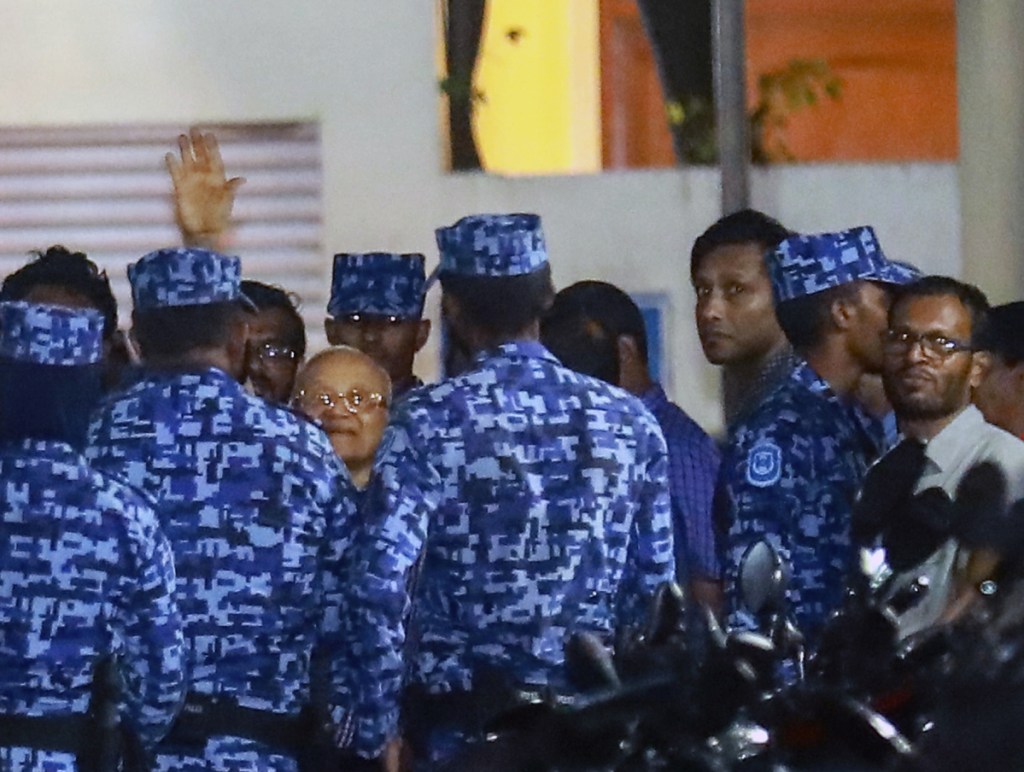MALE, Maldives — The Maldives government declared a 15-day state of emergency Monday as the political crisis deepened in the Indian Ocean nation amid an increasingly bitter standoff between the president and the Supreme Court. Hours after the emergency was declared, soldiers forced their way into the Supreme Court building, where the judges were believed to be taking shelter, said Ahmed Maloof, an opposition member of Parliament.
Soon after that, security forces arrested opposition leader Maumoon Abdul Gayoom on charges that include bribery and attempting to overthrow the government, his lawyer, Maumoon Hameed, said on Twitter. Gayoom was the archipelago nation’s president from 1978 to 2008 and is the half brother of the Maldives’ current president.
A surprise Supreme Court ruling last week ordering the release of imprisoned opposition leaders has led to growing turmoil, with President Yameen Abdul Gayoom lashing out at the court, opposition protests spilling into the streets of the capital, Male, and soldiers in riot gear deployed to the parliament building to stop lawmakers from meeting.
The emergency decree gives the government sweeping powers to make arrests, search and seize property and restricts freedom of assembly, officials said.
The U.S. strongly criticized the decree, which State Department spokeswoman Heather Nauert said also imposes travel restrictions.
President Gayoom has “systematically alienated his coalition, jailed or exiled every major opposition political figure” since his election in 2013, Nauert said.
She called on Yameen, the army, and police to comply with the rule of law, and for the constitutional rights of Maldivians to be restored.
The president’s main rival, who lives in exile, urged people not to obey what he called an “unlawful order.”
“This declaration is unconstitutional and illegal,” former President Mohamed Nasheed, the country’s first democratically elected leader, said in a statement. Nasheed was one of the opposition leaders that the court ordered freed.
In a statement issued after the state of emergency was announced on state television, Yameen said that “during this time though certain rights will be restricted, general movements, services and businesses will not be affected.”
Yameen, in a letter to the court released by his office earlier Monday, said the order had encroached on the powers of the state and was an “infringement of national security and public interest.” He urged the court to “review the concerns” of the government.
Send questions/comments to the editors.



Success. Please wait for the page to reload. If the page does not reload within 5 seconds, please refresh the page.
Enter your email and password to access comments.
Hi, to comment on stories you must . This profile is in addition to your subscription and website login.
Already have a commenting profile? .
Invalid username/password.
Please check your email to confirm and complete your registration.
Only subscribers are eligible to post comments. Please subscribe or login first for digital access. Here’s why.
Use the form below to reset your password. When you've submitted your account email, we will send an email with a reset code.